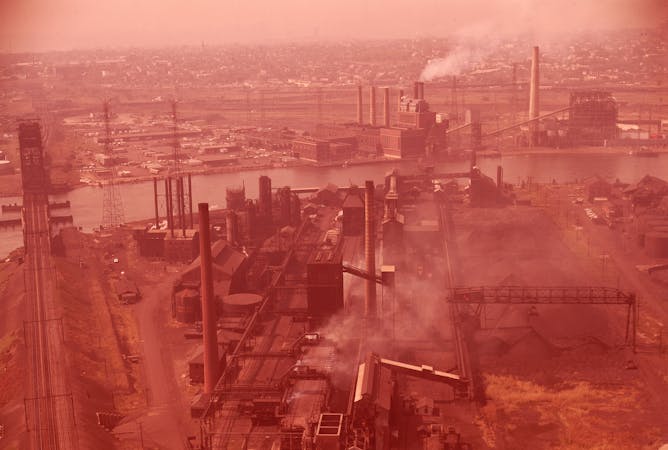|
Top headlines
Lead story
Chernobyl. Deepwater Horizon. Fukushima. Love Canal. Big environmental disasters are seared into our collective memory, thanks to media coverage, books and movies.
But the vast majority of environmental harm remains hidden or forgotten. That’s because it’s often easier for businesses, residents and politicians to look the other way.
According to Indiana University anthropologist Elizabeth Kryder-Reid, this can lead to what’s called “collective forgetting.” She writes about the artists and activists who are calling attention to toxic legacies in order to “push back against denial, habituation and amnesia.”
[ Miss us on Sundays? Get a selection of our best and most popular stories (or try our other weekly emails). ]
|

Activists in Newark, N.J., offer tours that teach visitors about the city’s legacy of industrial pollution and environmental racism.
Charles Rotkin/Corbis via Getty Images
Elizabeth Kryder-Reid, Indiana University
Societies celebrate heroes and commemorate tragedies. But why is there so little public acknowledgment of environmental disasters?
|
Politics + Society
|
-
Morgan Marietta, University of Texas at Arlington
The changes wrought by the new conservative majority in the US Supreme Court are revolutionary.
|
|
Science + Technology
|
-
Issam Mudawar, Purdue University
You can’t bring your AC to space, unfortunately, but innovative flow boiling and condensation research might lead to lighter, more efficient heating and cooling on spacecraft.
-
Michael W. Crowder, Miami University
The bourbon industry has been booming in recent years, but what sets all the different types of bourbon apart?
-
Shreyas Sen, Purdue University
With Apple’s capitulation on the latest iPhone models, USB-C is poised to become the standard connector for all devices.
|
|
Environment + Energy
|
-
Edward Doddridge, University of Tasmania; Ariaan Purich, Monash University
Sea ice around Antarctica has always followed a predictable seasonal cycle. Now, we’ve experienced a sudden dramatic loss, and the changes are here to stay.
|
|
International
|
-
Gavin E L Hall, University of Strathclyde
Two successful operations in and around Crimea demonstrate that, while Ukraine’s ground counteroffensive is moving slowly, Kyiv is expanding the scope of its ambition.
|
|